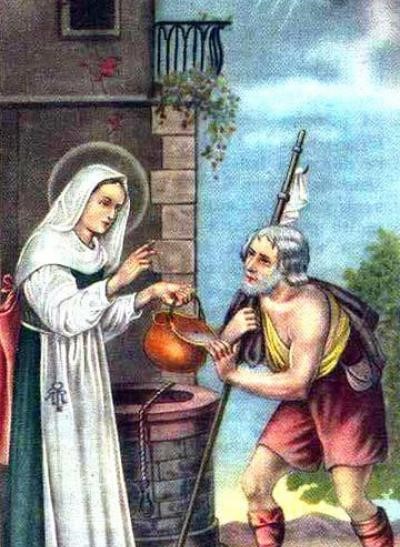
Saint of the Day for 27 April: St. Zita
St. Zita: The Patron Saint of Domestic Servants and Her Eternal Message of Humility and Service
Name
St. Zita
Title
Virgin
Birth
1218, Tuscany
Death
April 7, 1272, Lucca
Recurrence
27 April
Martyrology
2004 edition
Canonization
September 5, 1696, Rome, Pope Innocent XII
Prayer
O model of patience and meekness, glorious my patroness St. Zita, who by faithfully fulfilling your duties of state, attained great holiness, please turn a loving gaze upon me your devotee. Impart to me the grace of being able to imitate you in the practice of virtue, make me ready in obedience, fond of work, content with my condition, constant in good intentions, meek in contradictions, submissive to my superiors. Inspire in me a fervent love of Jesus and Mary, contempt for the vanities of the world, courage and prudence to flee dangers, and make me rich in merit to come one day to praise God with you in Paradise. Amen
Roman Martyrology
In Lucca, Saint Zita, virgin, who, of humble birth, was for twelve years a maid in the house of the Fatinelli family and in this service persevered with extraordinary patience until her death.
The Saint and Mission
St. Zita, who lived in 13th-century Lucca, embodied the Christian mission through her daily life, transforming the ordinariness of domestic service into a profound expression of faith. Her devotion was not limited to silent prayers, but was actively manifested in the way she treated both her employers and the less fortunate in her community. Despite her humble position as a servant, Zita distinguished herself through generosity and kindness, seeing service to others as a way of serving God himself. Her life is a shining example of how holiness can be achieved not through great visible deeds, but through love and dedication in daily actions. This approach to life left a lasting impression, making St. Zita a model of how faith can transform and elevate every task, even the humblest, into a sacred mission.
The Saint and Mercy
St. Zita is often celebrated for her deep mercy, a trait that permeated every aspect of her daily life in Lucca. Although she was only a servant, Zita saw her work not as a mere duty but as an opportunity to exercise Christian charity. Her compassion extended far beyond the confines of the house in which she worked; she was known to share her food and resources with those less fortunate, often sacrificing her own needs to alleviate those of others. This mercy was motivated not only by a sense of obligation, but by a sincere empathy and love for her fellow human beings, reflecting her understanding of the Gospel message of love and service. St. Zita teaches us that mercy can be a powerful act of rebellion against indifference, turning even the most modest circumstances into opportunities for grace and spiritual impact.
Hagiography
The Alexandrian Synaxarium is the only document to bear written record of St. Sara who lived between the 3rd and 4th centuries, placing the commemorative day of her “rebirth to heaven” (dies natalis)In medieval language, ” zita ” was equivalent to what is still called ” cita ” or ” citta ” in Tuscan dialects. That is, it meant ” girl,” and the diminutive of that term still exists in Italian vocabulary: ” zitella,” meaning unmarried. Santa Zita is therefore the saintly girl, and she is the only saint of that name that is still repeated in Tuscany, and especially in Lucca. Saint Zita, in fact, is the saint of Lucca, and…on April 20…
